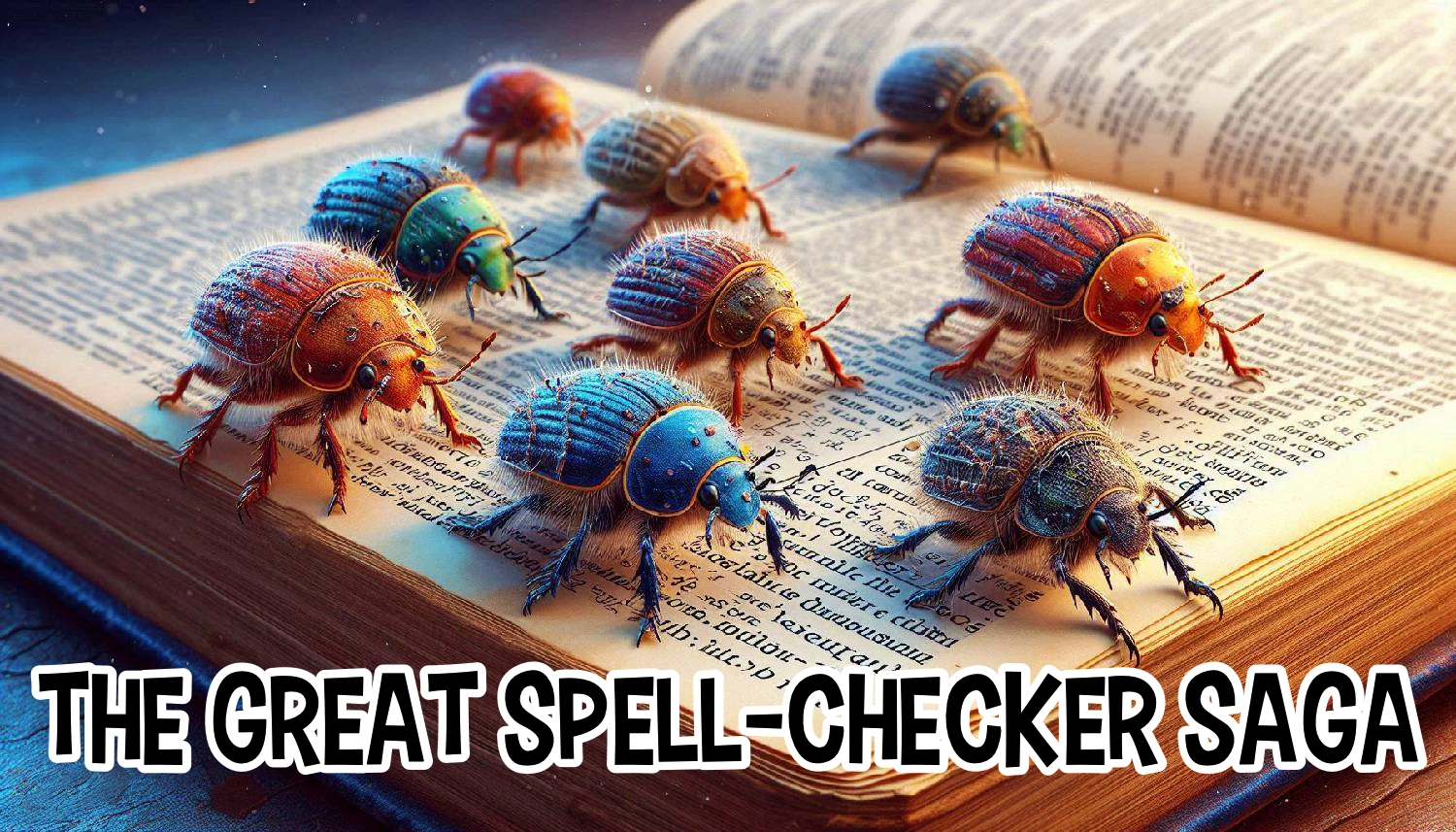The Great Spell-Checker Saga
A Comedy of Errors

Let me take you back to one of the more entertaining moments of my software testing career. Picture this: I'm on the Electronic Services team, and we're rolling out a spell-checking tool for a project. Seems simple, right? Wrong.
Spell-Check Shenanigans Story
It started with a bug - nothing new in the life of a QA professional. The spell-checker wasn't catching the most basic misspelled words. I'm talking about words like "teh" and "recieve" - ones that practically scream for correction. Naturally, I flagged the issue, and the developer confidently told me, "No problem, I'll just add those to the dictionary!"
Ya, this should have been the first red flag. Sure enough, the bug was back in no time, but this time, I tried different words. And guess what? The spell-checker blissfully ignored them, too. I went back to the developer, who scratched his head, muttering something like, "Hmm… maybe I'll just add those words to the dictionary too."
At this point, I was watching him shuffle through code like someone desperately looking for their keys in the couch cushions. Each "fix" he applied was like patching a leaky boat with chewing gum. Meanwhile, I kept testing, and with every new misspelling, it became clearer: the spell-checker was not ready for Production.
Then, enter Developer #2 - our hero. He walked in the next morning with a fresh cup of coffee and a confident air, looked at the situation, and immediately knew something was amiss. After a quick code review, he calmly pointed out that the first developer had been using an outdated third-party library. Not only that, but the library was so outdated, it might as well have been written in Perl.
"Let's link it to this other library," Developer #2 suggested.
Boom. Just like that, everything worked like a charm. The spell-checker started catching misspelled words faster than you could say "recieve." No dictionary hacks, no chewing gum fixes - just smooth sailing.
This rollercoaster of a bug hunt taught me a few things:
Quick fixes might be fun, but they're usually useless: Adding words to the dictionary every time something breaks is like trying to fix a flat tire by painting the car. It looks productive but does nothing.
There's always a second opinion for a reason: Developer #2 might as well have been wearing a superhero cape. Sometimes, it takes a fresh brain to clean up the chaos left behind by "creative" problem-solving.
In the end, we got the spell-checker to work, but not without a few laughs and some comically clumsy developer moments along the way. And hey, sometimes in QA, that's just how it goes.
